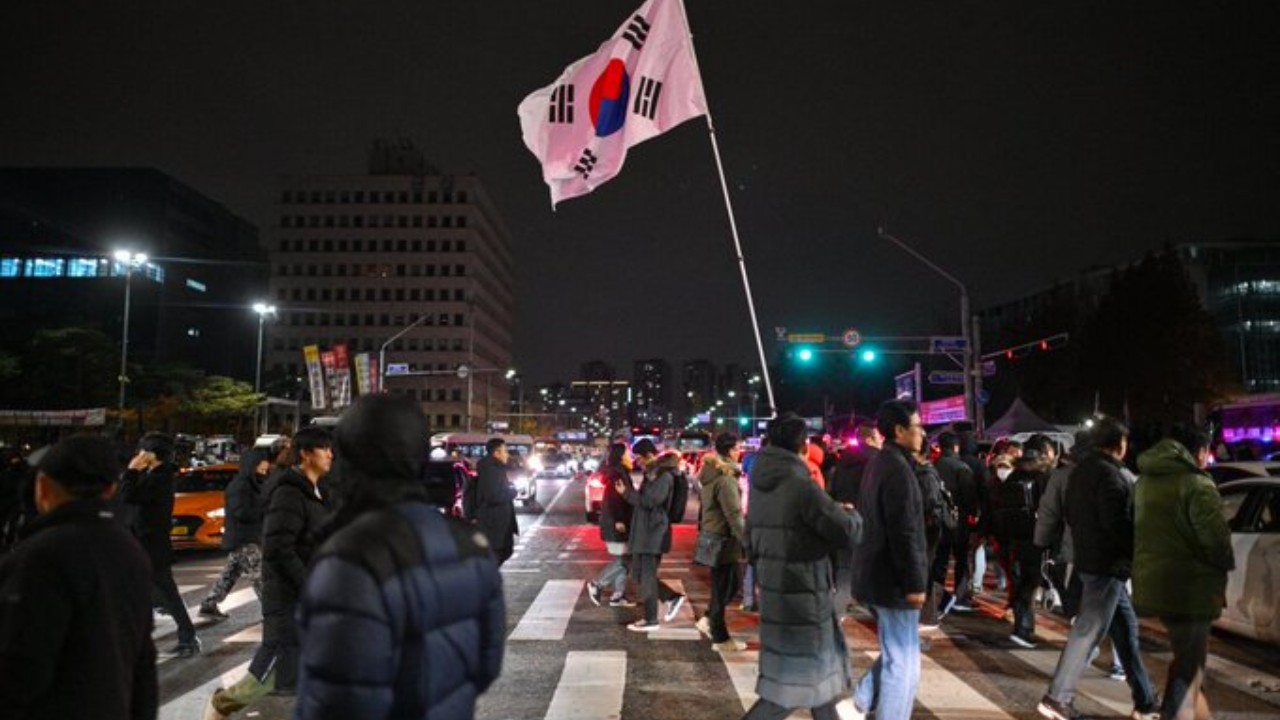
Martial law in South Korea: Why President Yoon took this drastic step? What are its implications (X/JoshEakle)
World News: In an extraordinary and controversial announcement, South Korean President Yoon Suk Yeol declared martial law on Tuesday, marking the first such declaration in over four decades. This stunning move comes as political tensions escalate between Yoon's ruling party and the opposition, raising alarms about the stability of democracy in the nation.
Yoon's declaration was framed as a necessary response to what he described as 'anti-state forces' threatening the country. In a live televised address, he stated, 'To safeguard a liberal South Korea from the threats posed by North Korea's communist forces and to eliminate anti-state elements plundering people's freedom and happiness, I hereby declare emergency martial law.' He accused opposition lawmakers of prioritizing political maneuvering over the welfare of the people, asserting that they have 'paralyzed governance solely for the sake of impeachments' and other self-serving agendas.
The president characterized the current political climate as dire, claiming that 'our National Assembly has become a haven for criminals,' and described his decision as 'inevitable to guarantee the continuity of a liberal South Korea.' He emphasized that this action would not interfere with the country's foreign policy but was essential for maintaining domestic order.
Under the newly imposed martial law, all political activities are now prohibited, including those of the National Assembly, local councils, and political parties. The decree explicitly states that 'all acts that deny or attempt to overthrow the liberal democratic system are prohibited,' alongside restrictions on media operations.
Key provisions include:
The announcement sparked immediate backlash from opposition leaders, who labeled it 'illegal and unconstitutional.' Lee Jae-myung, leader of the main opposition party, urged lawmakers to gather at parliament to oppose Yoon's declaration. Protests erupted near the National Assembly, with demonstrators chanting 'No martial law! No martial law,' highlighting widespread discontent with Yoon's decision.
Political analysts view this declaration as a desperate attempt by Yoon to regain control amid declining popularity and increasing calls for impeachment from opposition lawmakers. The swift reaction from both citizens and politicians underscores the potential risks associated with such drastic measures.
Yoon Suk Yeol's presidency has been marked by significant challenges since he took office in 2022. His approval ratings have plummeted amid various scandals involving his administration and personal life. Following a significant defeat in parliamentary elections earlier this year, he has struggled to push his legislative agenda against a hostile opposition.
This latest move is seen by many as an undemocratic strategy to counteract mounting political pressures rather than a genuine response to external threats. As Professor Leif-Eric Easley noted, Yoon's actions reflect a leader under siege who has resorted to extreme measures in response to escalating scandals and institutional resistance.
As South Korea navigates this unprecedented situation, questions remain about the future of its democracy and governance. With martial law declared and swiftly challenged by opposition forces, the coming days will be critical in determining whether stability can be restored or if further unrest will ensue. The world watches closely as South Korea grapples with this dramatic turn of events.





Copyright © 2026 Top Indian News
